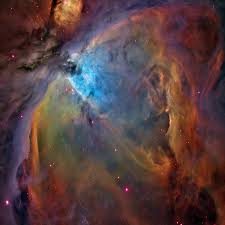
记忆方法
将“ineffable”分解记忆:“in”表示“不”,“effable”可看作是“effable”的变形,其原词“effable”意为“可形容的”、“可表达的”。因此,“ineffable”可以理解为“无法形容的”、“难以言喻的”。通过将单词的内在含义与字面拆解联系起来,有助于记忆。
以上内容由AI生成, 仅供参考和借鉴
中文词源
ineffable 难以言喻的
in-,不,非,ef-,向外,-fab,说出,词源同fable,phone.即不好说的,引申词义难以言喻的。
英语词源
- ineffable
-
ineffable: [15] Ineffable literally means ‘that cannot be spoken’. Its ultimate source was the Latin verb fārī ‘speak’, which has also given English fable, fame, fate, etc. Addition of the prefix ex- ‘out’ produced effārī ‘speak out’, from which the adjective ineffābilis was derived. In 19th-century English the word was used as a plural noun, like unmentionables, as a humorous euphemism for ‘trousers’ or ‘nether garments’: ‘shoes off, ineffables tucked up’, William Cory, Letters and Journals 1867.
=> fable, fame, fate - ineffable (adj.)
- late 14c., from Old French ineffable (14c.) or directly from Latin ineffabilis "unutterable," from in- "not, opposite of" (see in- (1)) + effabilis "speakable," from effari "utter," from ex- "out" (see ex-) + fari "to say, speak," from PIE root *bha- (2) "to speak, tell, say" (see fame (n.)). Plural noun ineffables was, for a time, a jocular euphemism for "trousers" (1823). Related: Ineffably.
权威例句
- 1. The beauty of a sunset is ineffable.
- 日落的美是难以形容的.
- 2. The terror had at long intervals given place to a feeling of an almost ineffable sweetness.
- 这种胆战心惊的感觉就偶尔让位给一种简直说不出的甜蜜的感觉了.
- 3. They threw this eager vitality of theirs into a vehement striving after the ineffable.
- 他们把他们的这种热烈的精力都投入了对一种无法表达的事物的强烈追求.
- 4. She sighed a sigh of ineffable satisfaction, as if her cup of happiness were now full.
- 她发出了一声说不出多么满意的叹息, 仿佛她的幸福之杯已经斟满了.
- 5. Actually those ineffable parts are manifested in practical use.
- 那些不可言说的部分是可以在使用中被显现的.